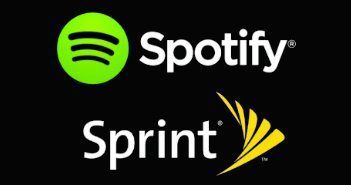Sprint is reportedly preparing to offer its customers music from Spotify. Pending approval from the music labels that license to Spotify, the deal is expected to be announced later this month. Sprint subscribers would get free trials of the music streaming service, and might also get discounts when signing on. Their bill for Spotify’s music would become part of their monthly bill from Sprint.
The deal would be similar to AT&T Mobility’s partnership with Beats Music, and it highlights the changing role of policy and charging for carriers. Policy and charging rules functions are evolving to enable new revenue models for carriers as they share APIs with content providers who can then make real-time offers to customers and allow them to pay for content on their mobile phone bills.
Amdocs has been a longstanding provider of billing and customer experience management solutions for Sprint. Late in 2012, the telecom software specialist signed a seven-year contract to provide billing, customer care and IT infrastructure management for Sprint. Amdocs’ Edwin Gans, director of product line management at the company’s data experience business unit, spoke to RCR Wireless News recently about new business models enabled by the evolution of policy control rules functions.
“There are some service providers that have introduced social networking packages where they give you a monthly recurring charge … and your social networking is not charged under your basic volume quota … we’re seeing quite a bit of that,” said Gans, adding that a typical monthly charge for social networking would be $5.
Some content providers want carriers to “zero-rate” their offerings, but the business models for this are still evolving. Vodafone reportedly turned Facebook down when the social media giant asked Vodafone to zero-rate the time its customers spend on Facebook, presumably because the social media giant was unwilling to pay. Vodafone has zero-rated the Zonga music service in Romania in the past, but the carrier had a partnership with Zonga.
Closer to home, AT&T Mobility has partnered with Beats Music to offer music streaming and downloads directly to its customers. The customer’s bill for the Beats subscription becomes part of the monthly wireless bill. And now Sprint looks ready to make a similar deal with Spotify.
Content providers like Spotify, Beats Music, Netflix and Facebook are at times viewed as a threat by mobile operators who worry that their customers have more loyalty to these “over-the-top” providers than to the network operators who enable their services. But carriers have more insight into user behavior than do content providers, and have the ability to offer content to a mobile user precisely when that user is looking for it. Innovations in billing and policy software are making it possible for mobile operators to monetize this advantage.
To learn more about the evolution of policy and charging, download our free editorial webinar.
Follow me on Twitter.

